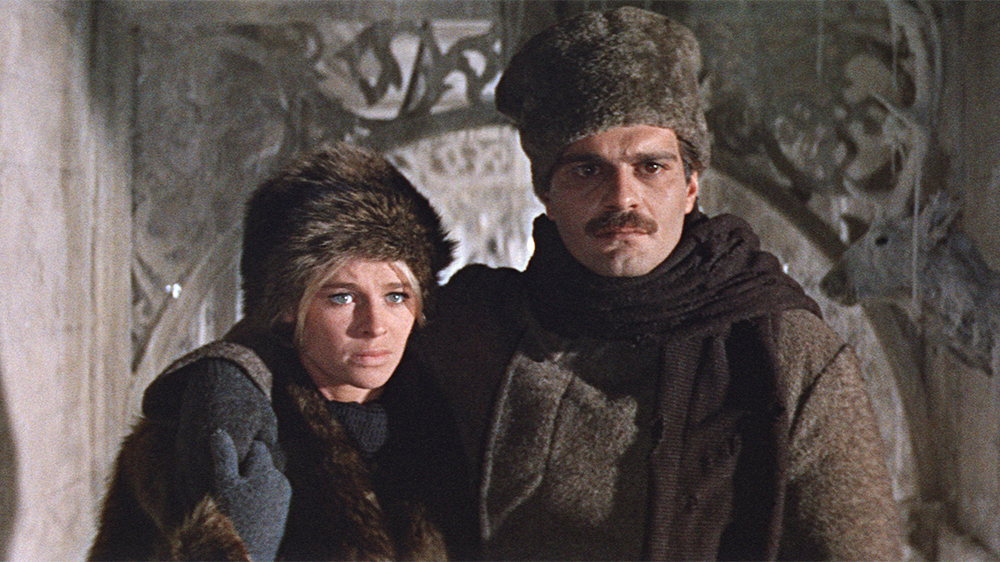On Nov. 13, UFV hosted an event in room B101 on the Abbotsford campus from 11:30 a.m. to 2:20 p.m. The event honoured the anniversary of Boris Pasternak’s classic, Doctor Zhivago, which won the Nobel Prize in Literature 60 years ago. Various speakers were in attendance, to present on the book’s sustained relevance. Admission was free, and food was provided.
Boris Pasternak is often considered to be one of the most influential Russian writers of all time, and one of the most important writers of the 20th century. In relation to Russian writers, he ranks up there with Vladimir Nabokov and Leo Tolstoy. On account of being one of the greatest writers of the 20th century, Pasternak resides amongst Hemingway and Capote.
Doctor Zhivago is perhaps his greatest literary piece and one of the most significant books of its time largely due to its subject matter and impact. The great epic centres around the devastation the Russian Revolution had on people both collectively and individually. For that reason, with its in-depth approach towards the subject matter, the Soviet Union banned the book for many decades. Hollywood loved the controversy around the book and consequently decided to produce an American film adaption of the same title in 1965. The film was considered a cinematic masterpiece, won numerous Academy Awards, and is regarded to this day as one of the best films ever made.
The three main presenters on the 60th anniversary of Doctor Zhivago winning the Nobel Prize in Literature were Larissa Horne, Ron Dart, and Alan Cameron. Larissa Horne works in experiential education at UFV and discussed the overall legacy of the book; Ron Dart is an associate professor in the political science department at UFV who zeroed in on the book’s ability to transcend tribalism; Alan Cameron is an associate professor in the modern languages institute at UFV who conducted a talk on the poems of Yuri Zhivago.
All presenters demonstrated exactly how much the book has persevered through time and remained a classic. However, perhaps the most interesting focus may be the topic of tribalism in relation to Doctor Zhivago’s reception. Thomas Merton and Boris Pasternak used to correspond with one another, although their letters were commonly intercepted by outside government forces and agencies out of fear they would indoctrinate one another. To provide context, this was during the Cold War and therefore it turned some heads to see a prominent American interact with a prominent Russian.
The example of Merton and Pasternak communicating with one another causing a stir is not the only one in existence in conjunction with Doctor Zhivago’s legacy. The film, while considered to be one of the greatest now and at the time of its release, may have won numerous Academy Awards yet was shoved aside for Best Picture by The Sound of Music. Had Doctor Zhivago been more “pro-America” in its storyline, chances are it would have won. Granted, Doctor Zhivago doesn’t sugar coat the Russian Revolution. On the other hand, it doesn’t exactly parallel The Sound of Music’s casting of shade onto the Nazis. The phenomenon of the most “pro-American” movie winning Best Picture, especially from a militaristic approach, isn’t new. Doctor Zhivago being shoved aside by The Sound of Music is a great testament to its tribal reception at the time of its release and a great precursor to how a similar phenomenon with other movies still takes place. History shows that so long as a contender for Best Picture portrays a previous effort of the American military in tandem with pandering to the dominant public opinion of that effort, it has a solid chance of winning. Patton and Argo are two movies that pump the proverbial tires of the American ego in relation to the Second World War and the Iranian hostage scenario that ended in the ushering in of Ronald Reagan’s rising popularity. Not surprisingly, they also happen to be Best Picture victors.
We live in an interesting time in our history in which tribalism is in full swing. There’s a massive trend of people on all ends retreating into their ideological echo chambers. Celebrating Boris Pasternak’s Doctor Zhivago serves as a great reminder to the human condition about the innate characteristics of how divisive human beings can be. Perhaps we should all reflect on the significance of this book and remind ourselves how wrapped up we can be in our own thinking. In the age of political correctness, Trump, and social media, this exercise is more pressing and timely than ever as those three characteristics of western society currently re-perpetuate a tribal phenomenon relating to pride and ideology as was seen by the advent of Doctor Zhivago.


